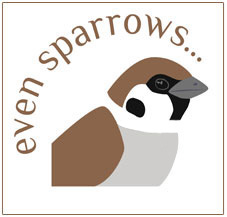

PARTRIDGES IN PEAR TREES AND IN THE BIBLE TOO!
Posted: 06.12.24 in Articles category
Christmas is coming and we'll soon be singing carols. One of the few that features birds is the 'Twelve Days of Christmas' - an English Christmas carol first published in 1780 in a children’s book Mirth Without Mischief. Its origins are a mystery, although one popular suggestion is that the carol was intended as a ‘catechism song’, used by young Catholics to help them learn the tenets of their faith. A partridge in a pear tree is mentioned in the first verse and is said to represent Christ on the cross, while other verses refer to various parts of the Catholic doctrine. However, this theory has been widely disputed with others arguing instead the song had secular origins as a memory game. Six of the carol's 12 verses feature birds: turtle doves; french hens; the mysterious 'colly birds' (which might be canaries); swans; geese, and of course that partridge. Bizarrely, the song makes mention of the game bird being in a pear tree, presumably perched on a branch which would be unusual for our indigenous partridges.
Partridges also feature in the Bible, but the descriptions and contexts presented are more typical for this family of birds. There are 2 Old Testament references:
1 Samuel 26 verse 20
Now do not let my blood fall to the ground far from the presence of the Lord. The king of Israel has come out to look for a flea - as one hunts a partridge in the mountains.
Words from the fugitive David when he captured King Saul (who had been pursuing him) and spared his life. David described his king's actions as foolish as searching for a flea. It was an action David compared to hunting a partridge in the mountains - presumably a metaphor used then to describe futile activity as the bird was too hard to find there.
Jeremiah 17 verse 11
Like a partridge that hatches eggs it did not lay are those who gain riches by unjust means. When their lives are half gone, their riches will desert them, and in the end they will prove to be fools.
A proverb from the prophet Jeremiah whose meaning is clear even today. It's presumably based on a commonplace observation that some hen partridges dump their eggs in the nests of other female partridges who hatch and rear them, oblivious to the fact that those chicks are not their own. We now know that various kinds of bird do this and we name this behaviour as 'brood parasitism', with the cuckoo being the most well known example. While such behaviour may make sense for the parasite bird as she no longer needs to spend her energies feeding her natural young, it can be detrimental both to the host bird and the host's own offspring. In the words of the prophet she may prove to be a fool.